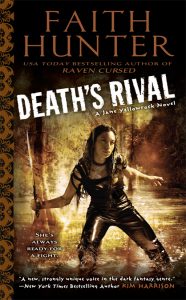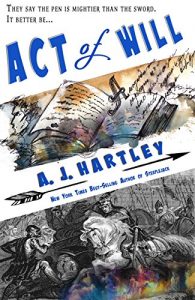I had fully intended to write a fairly typical Thanksgiving week post — things I’m thankful for, what the holiday means to me, etc.
I can’t now. Because once again, America is killing its own. This weekend, a quick perusal of any news site (at least any news site that publishes real news) turned up a shooting on the campus of the University of New Mexico, a continuing investigation into the shootings at the University of Virginia, and, of course, the horrific mass shooting at Club Q, a nightclub in Colorado Springs that was a gathering place for that city’s LGBTQ community.
I have written before about the mind-numbing frequency of shootings in this country. For today, I’ll refrain from doing so again. Guns are part of the American psychosis. They plague our society and, I am afraid, always will. The Second Amendment to our Constitution, a relic of a different time, which should long ago have gone the way of the document’s limits on enfranchisement to white men, has somehow become more sacrosanct than protections of free speech and the prohibition against state-established religion. It is a vestigial amendment, as useless as T-Rex’s forearms. And yet it remains.
The massacre at Club Q raises different, deeper concerns. This was (another) hate crime aimed at the gay-queer-trans community. Such crimes have been on the rise this year as demagogues on the right have aimed poisonous rhetoric and destructive policy initiatives at all in the community, but especially trans youth, their parents, and their doctors. Too many politicians — among them Ron DeSantis, Marjorie Taylor Greene, Lauren Boebert, and the entire Tennessee Republican party— are trying to make a name for themselves in conservative circles by banning books that deal with LBGTQ themes, passing “Don’t-Say-Gay” laws, filling the political airwaves with falsehoods and ugly accusations, making it seem that any who are different, who live their lives outside the heteronormative assumptions of a bygone era, are enemies of our republic and a danger to our children.
The attacks are sick. They are founded on lies and inaccurate stereotypes. And make no mistake, they are directly responsible for the rise in violence aimed at the queer community, including this weekend’s shooting.
How do we reconcile this sort of tragedy with a national day devoted to giving thanks for our blessings? How do we look beyond the carnage, the grief, the fear, the devastating psychological toll this sort of terrorism has on entire communities, so that we can find our way to gratitude and compassion and love? I’m asking, truly. Because I don’t see it.
I’m thankful my children and other loved ones are safe? Of course I am. But that feels thin, self-serving, a bar set so low as to be meaningless. I’m thankful to live in a free country, a land that often trumpets its exceptionalism, its boundless virtues, its capacity for charity and resilience? Again, yes, I suppose I would rather live here than anywhere else. But the calculus gets harder with each shooting, with each act of brutal intolerance. What good is liberty if huge swaths of our populace live with constant, oppressive fear? What has happened to the promise of America when nearly two hundred and fifty years after the Declaration of Independence, so many of our citizens are still subject to physical violence and psychological brutality simply because they don’t conform to what a few narrow-minded fools consider “normal?”
Thanksgiving at its best — and it has long been my favorite holiday — is about taking stock, slowing down to acknowledge, in private or publicly, those people and things for which we are most grateful. It is a time for family and friendship, for sharing and giving. And, yes, for good food and laughter around the dining room table.
Murder, bloodshed, terror, hate, bigotry — these have no place in our celebrations. Today, I don’t feel thankful. It doesn’t feel right to catalogue all the ways in which I am so very fortunate, though I know I ought to do so. Everything I eat tastes like dust and ash.
In days to come, we will hear more about the man who did this. He’ll be called “troubled” and his actions will be condemned. We’ll hear the inevitable pablum from the right — “our thoughts and prayers are with the victims and their families.”
But few will speak the obvious hard truths. This man may be sick, but so is our society. His actions may be those of a madman, but they are the natural outgrowth not only of mental illness, but also of cold, cruel political calculation. And today’s thoughts and prayers will be rendered meaningless by tomorrow’s soundbites.
Take care of one another. Stay safe.









 I believe my action scenes are pretty effective, and, actually, I would say the same about my sex scenes. But that wasn’t always the case. In the first draft of my very first novel, Children of Amarid, I wrote a sex scene that my editor tore apart. And with good reason. While the rest of the narrative worked pretty well, the sex scene felt completely staged and out of character. And the reason was quite simple: For that one encounter, I forgot about my characters’ points of view and tried to write a sex scene that felt, well, sexy. That didn’t work, because my characters were young and in love, but also inexperienced and still a little awkward with each other. None of that came through in the writing.
I believe my action scenes are pretty effective, and, actually, I would say the same about my sex scenes. But that wasn’t always the case. In the first draft of my very first novel, Children of Amarid, I wrote a sex scene that my editor tore apart. And with good reason. While the rest of the narrative worked pretty well, the sex scene felt completely staged and out of character. And the reason was quite simple: For that one encounter, I forgot about my characters’ points of view and tried to write a sex scene that felt, well, sexy. That didn’t work, because my characters were young and in love, but also inexperienced and still a little awkward with each other. None of that came through in the writing. In the same way, action scenes – fight scenes, battle scenes, violent scenes; whatever you want to call them – also hinge on the qualities, histories, experiences, and emotions of our point of view characters. A seasoned fighter, someone who makes their living in a violent world or who was brought up to be a warrior, is going to experience violence quite differently from, well, someone like me, who has little knowledge of fighting technique and scant history with violence and bloodshed. The practiced fighter’s point of view might sound almost clinical – this person will know how to control emotion, how to draw upon skills and observations learned over years of training. The novice’s point of view should come off as far more desperate, fearful, overwhelmed by the frenzy of violence in which they find themselves. Again, point of view is all. One is not necessarily more exciting to read than the other – think of the battle scenes in Faith Hunter’s thrilling, New York Times Bestselling Jane Yellowrock books and in A.J. Hartley’s wonderful Will Hawthorne novels, which are not only entertaining but also a master class in writing voice. Jane is a warrior; Will is SO not.. The scenes in both make for compelling reading, but they couldn’t be more different.
In the same way, action scenes – fight scenes, battle scenes, violent scenes; whatever you want to call them – also hinge on the qualities, histories, experiences, and emotions of our point of view characters. A seasoned fighter, someone who makes their living in a violent world or who was brought up to be a warrior, is going to experience violence quite differently from, well, someone like me, who has little knowledge of fighting technique and scant history with violence and bloodshed. The practiced fighter’s point of view might sound almost clinical – this person will know how to control emotion, how to draw upon skills and observations learned over years of training. The novice’s point of view should come off as far more desperate, fearful, overwhelmed by the frenzy of violence in which they find themselves. Again, point of view is all. One is not necessarily more exciting to read than the other – think of the battle scenes in Faith Hunter’s thrilling, New York Times Bestselling Jane Yellowrock books and in A.J. Hartley’s wonderful Will Hawthorne novels, which are not only entertaining but also a master class in writing voice. Jane is a warrior; Will is SO not.. The scenes in both make for compelling reading, but they couldn’t be more different.